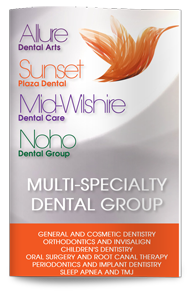How Tooth Loss Can Affect Your Mind and Body
 When you lose teeth, more than just your chewing ability may be affected. According to a study published in the Journal of the American Geriatrics Society, seniors who still had all of their teeth walked faster and performed better on memory tests compared to their counterparts with missing teeth. Understanding this connection might provide more motivation to prevent tooth loss and treat it properly when it does occur.
When you lose teeth, more than just your chewing ability may be affected. According to a study published in the Journal of the American Geriatrics Society, seniors who still had all of their teeth walked faster and performed better on memory tests compared to their counterparts with missing teeth. Understanding this connection might provide more motivation to prevent tooth loss and treat it properly when it does occur.
In a major study on this topic, researchers found that a variety of factors associated with poor dental health accompanied tooth loss in many patients. These factors include low socioeconomic status, drinking, smoking and depression. Even after adjusting for these confounders, the researchers observed a major link between tooth loss and poorer functioning.
According to the researchers who performed this study, loss of teeth in later life may frequently signal cognitive decline. At the same time, tooth loss may result in worse physical and mental functioning in certain ways. For example, tooth loss can reduce the ability to chew many nutritious foods. Missing teeth may also make patients feel self-conscious, preventing them from being active and seeking cognitive stimulation from friends. Over time, reduced use of the body and mind may result in deterioration.
Daily brushing and flossing and regular check-ups can help minimize risks of tooth loss. After tooth loss occurs, patients can best restore their looks and chewing ability with dental implants that closely emulate real teeth. You can schedule a consultation with our dental implants dentist in Los Angeles to learn more about the link between tooth loss and overall well-being.
Back to Blog





